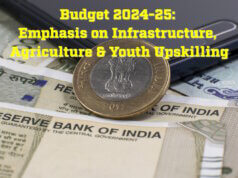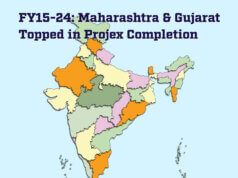 The sustainability of a city depends to a large extent on its ability to provide adequate public utilities such as power, water and sanitation, transportation frameworks, and green spaces that are designed to cater to even the needs of future residents, says Sunil Mantri, Chairman and Managing Director, Mantri Realty.
The sustainability of a city depends to a large extent on its ability to provide adequate public utilities such as power, water and sanitation, transportation frameworks, and green spaces that are designed to cater to even the needs of future residents, says Sunil Mantri, Chairman and Managing Director, Mantri Realty.
At the turn of the century, India had a population of around one billion and a census count of 500 cities. Ten years later, by 2011, the census recorded that India had a population of 1.21 billion and 7,300 cities. If India’s total population is expected to be around 1.5 billion by 2030, the urban population will be around 600 million by then. This is more than twice as much as it was in 2001. This estimate is lower that even the current level of globalisation which stands at 50 per cent and is far less than levels of over 80 per cent in Europe and North America.
Naturally, the aim of all stakeholders should be to ensure that while these centres of economic progress are encouraged, they are conceived and crafted to ensure a better standard of living for residents and more importantly, that they are sustainable on various fronts.
Here are some issues that could go a long way in ensuring better urban development/redevelopment:
Planning and budgetary allocation
Just as in the case of infrastructure, education, defence and any other major portfolio, the government should set up a national task force to study the whole issue of urban development and renewal. It should be given the mission to suggest strategies, roadmaps and benchmarks that can be followed in order to ensure that urbanisation takes place in an optimal manner, with given time frames and apportionment of accountability. There should be clear suggestions regarding budgetary allocations, objectives and deliverables.
Further, the Government should extend the Jawaharlal Nehru National Urban Renewal Mission, the massive city-modernisation scheme launched by the Government of India under the Ministry of Urban Development. This mission, which envisages a total investment of over $20 billion over seven years was extended for an additional two years which very recently on ended on March 31, 2014. This time, the mission should be augmented to cover more cities and towns and have inbuilt incentives to reward efficiency and timely performance.
Empowerment of authorities and accountability
 While the process of urbanisation should have a great emphasis on accountability, there should be clear demarcation of authority too. The government of India has enacted the 74th Amendment towards this end towards strengthening municipal governance by improving the performance ability of municipalities, so that they are able to discharge their duties efficiently. Unfortunately, although it was incorporated into the Constitution more than 20 years ago, it has not yet been functional as conceived. Local authorities such as mayors and heads of local bodies should be suitably empowered to oversee the development or renewal of cities and equipped with appropriate jurisdiction to ensure the smooth progress of their strategies.
While the process of urbanisation should have a great emphasis on accountability, there should be clear demarcation of authority too. The government of India has enacted the 74th Amendment towards this end towards strengthening municipal governance by improving the performance ability of municipalities, so that they are able to discharge their duties efficiently. Unfortunately, although it was incorporated into the Constitution more than 20 years ago, it has not yet been functional as conceived. Local authorities such as mayors and heads of local bodies should be suitably empowered to oversee the development or renewal of cities and equipped with appropriate jurisdiction to ensure the smooth progress of their strategies.
Facilitate fund raising at the local level
Very often funds present a formidable obstacle in urban development/redevelopment. While the central government does allocate funds for the renewal and redevelopment of cities, other sources of revenue must be made available to local bodies and they should be encouraged to raise funds from the public, for instance in the form of municipal bonds.
Creation of public utilities, transportation basics and green spaces
|
The sustainability of a city depends to a large extent on its ability to provide adequate public utilities such as power, water and sanitation and transportation frameworks that are designed to cater to even the needs of future residents. Green spaces are also a crucial facet of sustainable cities. There should be standard prerequisites and benchmarks set to ensure that these are put in place prior to residences and commercial and business spaces. The bodies that monitor and regulate these spaces should also be given adequate funds and authority to ensure that these facilities do not deteriorate over time. Ideally, these facilities should be economically self sustaining or cross subsidised through other linked facilities.
Promotion of mass housing and slum-free cities
A byproduct of ad hoc development has been the mushrooming of slums in cities. If cities are designed to ensure that low cost housing is available, it would preempt the development of slums. Urban planning should have some provision to ensure that low cost housing becomes a viable proposition to private developers as it will ease the financial burden on central government and local authorities.
Citizen/stakeholder participation
Since stakeholders at the city level are likely to comprise relatively manageable numbers of people who are affected by common issues, there should be suitable mechanisms in place, such as referendums, to ensure that their inputs are sought on crucial issues. These could be through non-government or formal organisations. Shouldering responsibility in decision making will make citizens more conscientious and cooperative and result in faster policy formation, approval and implementation.











